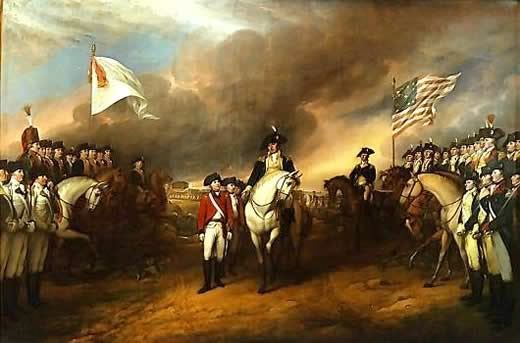 The Battle of the Chesapeake, also known as the Battle of the Virginia Capes, was a critical naval battle in the Revolutionary War. It also provides a fabulous example of how world and military history have been shaped in part by food.
The Battle of the Chesapeake, also known as the Battle of the Virginia Capes, was a critical naval battle in the Revolutionary War. It also provides a fabulous example of how world and military history have been shaped in part by food. The battle took place near the mouth of the Chesapeake on September 5, 1781 between a British fleet led by Rear Admiral Sir Thomas Graves and a French fleet led by Rear Admiral François Joseph Paul, Comte de Grasse. Although it didn't end the war, the victory by the French was a major strategic defeat for the British because it prevented the Royal Navy from resupplying food, troops, and other provisions to General Charles Cornwallis’ blockaded forces at Yorktown.
Equally important, it prevented interference with the delivery of provisions that were en route to General George Washington's army through the Chesapeake. Six weeks later, with the British forces trapped, hungry and depleted, Cornwallis surrendered his army to George Washington after the Seige at Yorktown, which effectively ended the war and forced Great Britain to later recognize the independence of the United States.
Of course, many other critical factors contributed to the end of the war, but that doesn't diminish the fact that food (or the lack of it) has played an enormously important role in the course of world and military history.
FAST FACT: General Winfield Scott observed that, "The movements of an army are necessarily subordinate...to considerations of the belly." And Napoleon valued pickles as a food source for his armies so much that he offered the equivalent of $250,000 to the first person who discovered a way to safely preserve food. The man who won the prize in 1809 was a French chef and confectioner named Nicolas Appert who discovered that food wouldn’t spoil if you removed the air from a bottle and boiled it long enough. This process, of course, is known as canning and Appert's discovery was one of the most pivotal events in the modern history of food and human nutrition!
